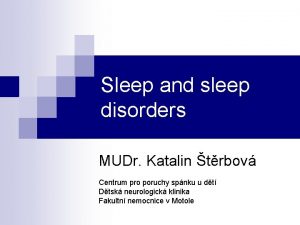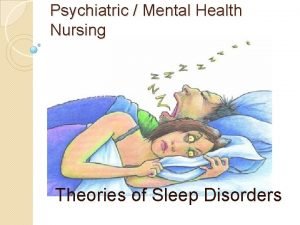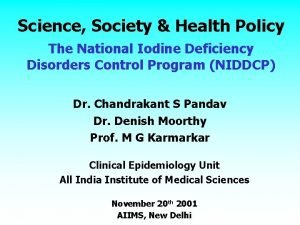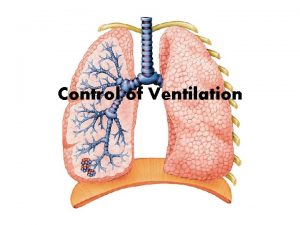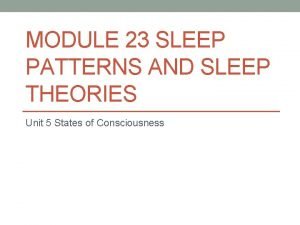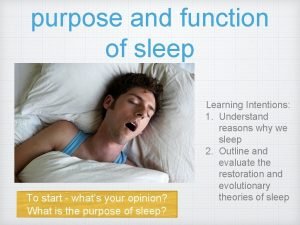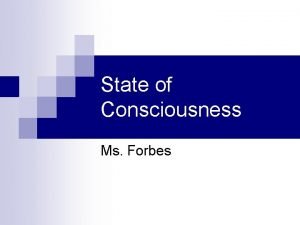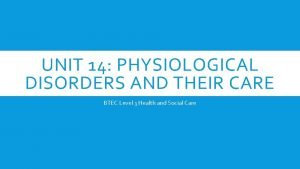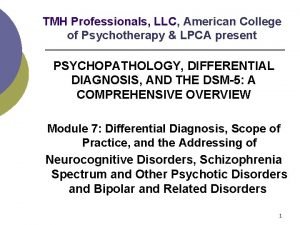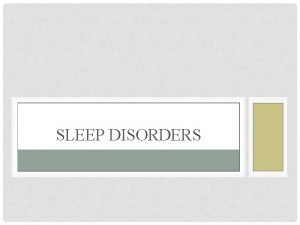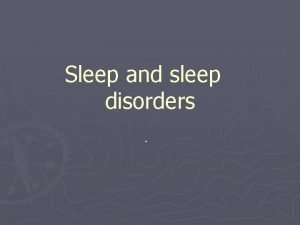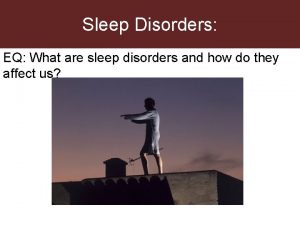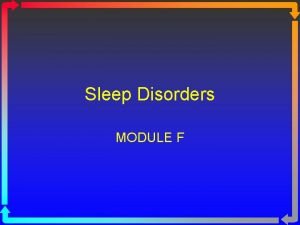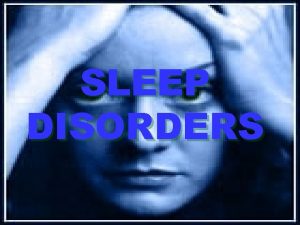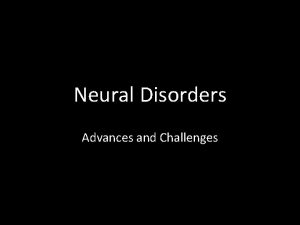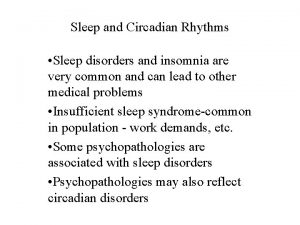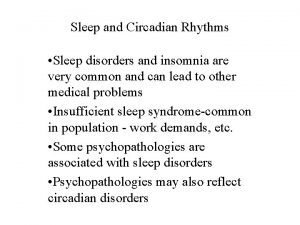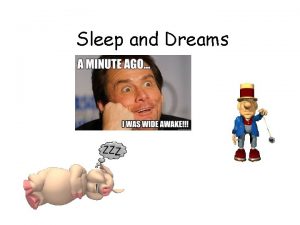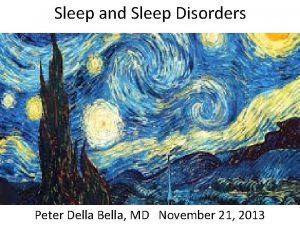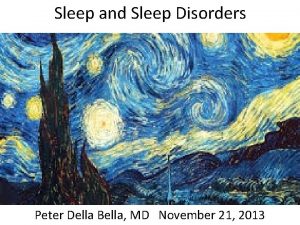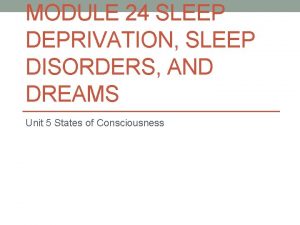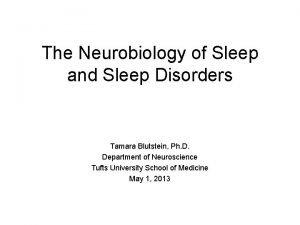Sleep and Sleep Disorders Neural Control of Sleep



















- Slides: 19

Sleep and Sleep Disorders

Neural Control of Sleep § Sleep and waking are different states of arousal. § Reticular activating system controls this. § Decrease in arousal is accompanied by less cortical activity.

Neural Control of Sleep § Bodily cycles (circadian rhythms) are controlled by part of the hypothalamus. § Pineal gland controls circulating levels of melatonin —more light, less melatonin.

Biological Clock Circadian Rhythms

Stages of Sleep REM Sleep

Rapid Eye Movement (REM)Sleep § Eyes move rapidly. § If awakened 90% report dreaming. § Paradoxical § Muscles relaxed. § Brain active. § Sometimes called active sleep. § Seems to be necessary. § If insufficient, amount per night increases.

Effects of REM Deprivation

Sleep Disorders

Sleep Apnea § Most who suffer from sleep apnea snore heavily. § All snorers do not have sleep apnea. § So what is it?

Sleep Apnea § Relaxation of sleep leads to blocking of airway. § Person awakes briefly, gasps, and falls back to sleep. § May happen 100 s of times per night.

Insomnia § Inadequate or poor quality sleep because of: § Difficulty falling asleep. § Waking up frequently during the night with difficulty returning to sleep. § Waking too early in the morning. § Unrefreshing sleep.

Insomnia § More common for: § § § Elderly Females Those who are depressed. § Causes: § § § Stress Environmental noise Extreme temperatures Change in the surrounding environment Sleep-wake schedule problems, e. g. , shift work, jet lag. Side effects of medication.

Insomnia § Contributing factors: § Expecting to have difficulty sleeping. § Large amounts of caffeine. § Drinking alcohol before bedtime. § Smoking cigarettes before bedtime. § Excessive napping in the afternoon or evening. § Irregular, or continually changing sleep-wake schedules.


Less Common Sleep Disorders § Narcolepsy § Sleep disorder characterized by sudden bouts of irrepressible sleep. § Individual may fall to ground in sound sleep. § Can be dangerous if not controlled. § Regular hours and sufficient sleep. § Drugs § Cataplexy § Individual experiences sudden muscle paralysis as in REM sleep while they are awake. § Will collapse.

Sleep Walking § More common in children. § Usually outgrown by the age of 15. § Occurs during deepest sleep rather than REM sleep.

Night Terrors

Night Terrors § Also occurs during deepest, Stage 4 sleep. § Most common in children between 4 – 7 years of age. § Child wakes crying as if in terror but seems as if not really awake. No response to visual stimuli or questions. § May, or may not report a scary dream when fully awake.

What is Sleep For? § It seems to be restorative: § Restores glycogen stores and stengthens the immune system. § Bodily repair—extremely active people sleep more. § Bodily rhythms may have evolved to ensure quiet periods during time when most predators for the species are about. § Consolidation of learning: § Lack of sleep interferes with memory storage.
 Sleep disorders
Sleep disorders Remalteon
Remalteon Sleep disorders
Sleep disorders Dyssomnias
Dyssomnias Who analgesic ladder
Who analgesic ladder The wake-sleep algorithm for unsupervised neural networks
The wake-sleep algorithm for unsupervised neural networks National iodine deficiency disorders control programme
National iodine deficiency disorders control programme Neural control of breathing
Neural control of breathing Module 23 sleep patterns and sleep theories
Module 23 sleep patterns and sleep theories Module 23 sleep patterns and sleep theories
Module 23 sleep patterns and sleep theories Module 23 sleep patterns and sleep theories
Module 23 sleep patterns and sleep theories Come sleep
Come sleep Adults spend about ______% of their sleep in rem sleep.
Adults spend about ______% of their sleep in rem sleep. Product control
Product control Positive vs negative control
Positive vs negative control Flow control and error control
Flow control and error control Btec level 3 health and social care unit 14 coursework
Btec level 3 health and social care unit 14 coursework Bipolar and other related disorders
Bipolar and other related disorders Bipolar and other related disorders
Bipolar and other related disorders Assistive technology for behavior
Assistive technology for behavior
